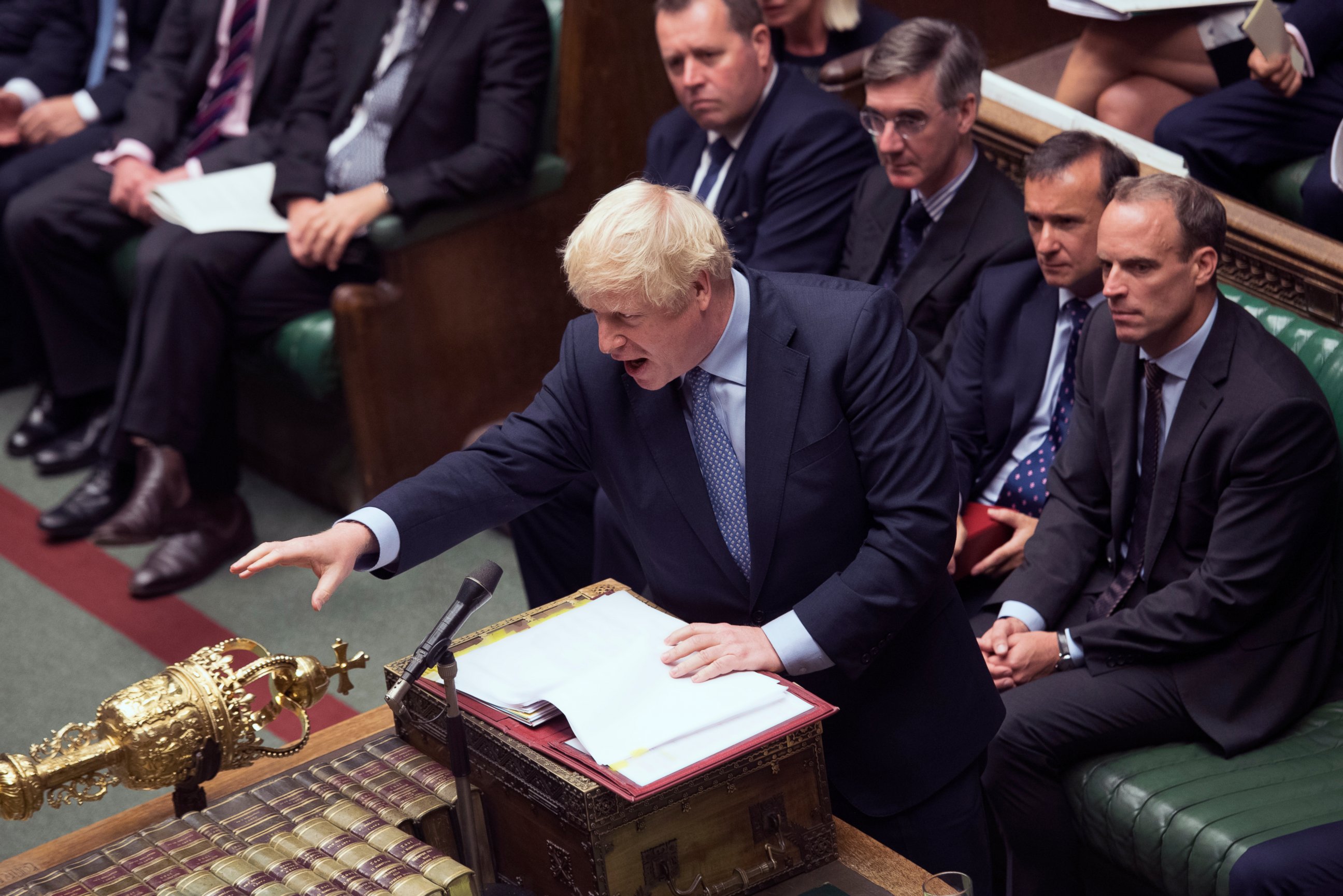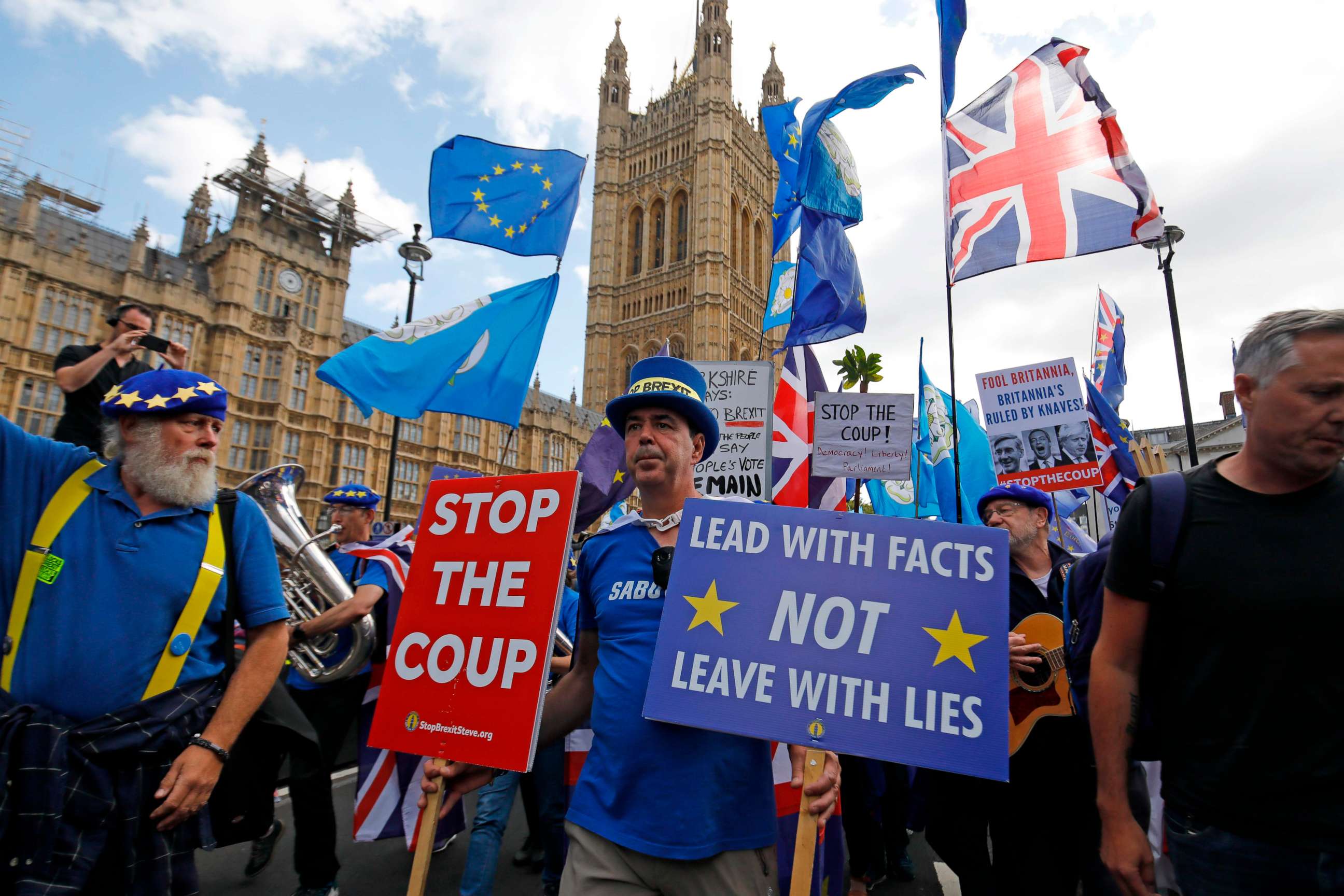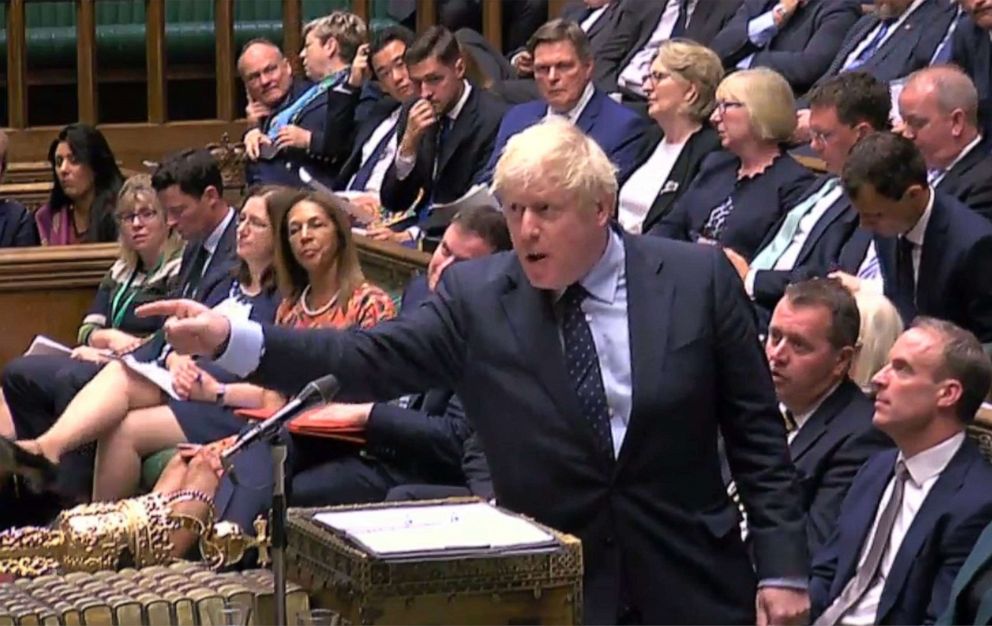British lawmakers rule out no-deal Brexit, reject Prime Minister Boris Johnson's election plan
Two-thirds of lawmakers in the U.K. Parliament have to agree to it.
The U.K. Parliament has voted to rule out a no-deal Brexit in defiance of Prime Minister Boris Johnson, who followed up by saying a general election was the only way out of the country's deepening political crisis.
Lawmakers voted 327 to 299 in favor of a law that will force the prime minister to ask for an extension to the Brexit deadline of Oct. 31 if he has not agreed a deal with EU leaders -- a deal that remains unlikely to pass through Parliament. In response, Johnson, who has promised to leave the EU with or without a deal, said that "there must now be an election on Tuesday 15 October," although this will require the consent of two-thirds of Parliamentary lawmakers in order to happen.
But just hours later, that two-thirds vote came up short in Parliament and there will be no Oct. 15 general election. It now looks likely Johnson will have to ask for the extended Brexit deadline.
The vote to block "no-deal" was the second defeat for Johnson's embattled government in two days, after several members of his own Conservative Party voted against him to bring forward the legislation voted on Wednesday. The political turmoil saw 21 Conservative members of Parliament expelled from the party, including Sir Nicholas Soames, the grandson of Britain’s World War II leader Winston Churchill.
Johnson has now said he will table a motion to have a general election, to be voted on in Parliament soon. If it passes by a two-third majority, a general election will be held to elect new members of Parliament.
The government’s loss of the crucial vote, dubbed a "showdown" by the British media, is a major blow to the Johnson government’s plans of leaving the EU by the end of October.
Former Prime Minister Theresa May was forced to request an extension to the previous Brexit deadline of March 31, and subsequently resigned after the deal she had negotiated with EU leaders was voted down three times by lawmakers earlier this year.

Johnson’s Conservative Party lost their majority in Parliament Tuesday vote after lawmaker Phillip Lee defected to the Liberal Democrat Party, which advocates a second referendum and remaining in the EU. In dramatic scenes, Lee "crossed the floor," physically leaving the Conservative Party to join the opposition on the other side of the chamber.
Johnson has repeatedly said he would prefer to leave the EU with a deal, although they were willing to leave without one "do or die."
If Parliament agrees to a general election, the scheduled date would be Oct. 15, a day after Parliament is scheduled to return from the historic suspension the Queen approved last week.
Under that schedule, the newly elected government would have less than three weeks to determine the way out of the Brexit conundrum that has dominated British politics for the past three years.

The Johnson government’s highly controversial move to suspend Parliament during the crucial Brexit period appears to have united opposition to Johnson’s Brexit plans. Critics of a no-deal Brexit have long warned that it would have a disastrous impact on the British economy. Labour Party leader Jeremy Corbyn has repeatedly called for a general election.
However, it is unclear whether Parliament and the Labour Party will agree to the prime minister's plans, as some lawmakers would prefer an extension to the Oct. 31 Brexit deadline to be confirmed before campaigning begins.
Johnson, who helped lead the push to exit the EU in a national referendum three years ago, took over from May in July.
He has been an ally of President Donald Trump, and the two met just a couple weeks ago at the G-7 summit. Trump supported Johnson in comments on Wednesday, saying, "Boris is a friend of mine. And he’s going at it. There’s no question about it. I watched him this morning. He’s in there fighting."
"Boris knows how to win," he added. "Don’t worry about him."

Johnson has appointed a government of mainly Brexit supporters, which has positioned the Conservatives as the party of Brexit in the event of an election.
A general election would likely be chaotic and extremely bitter, and there are no guarantees it would transform the parliamentary arithmetic in favor or against advocates of a no-deal Brexit.
ABC News' Ben Gittleson contributed to this report.




